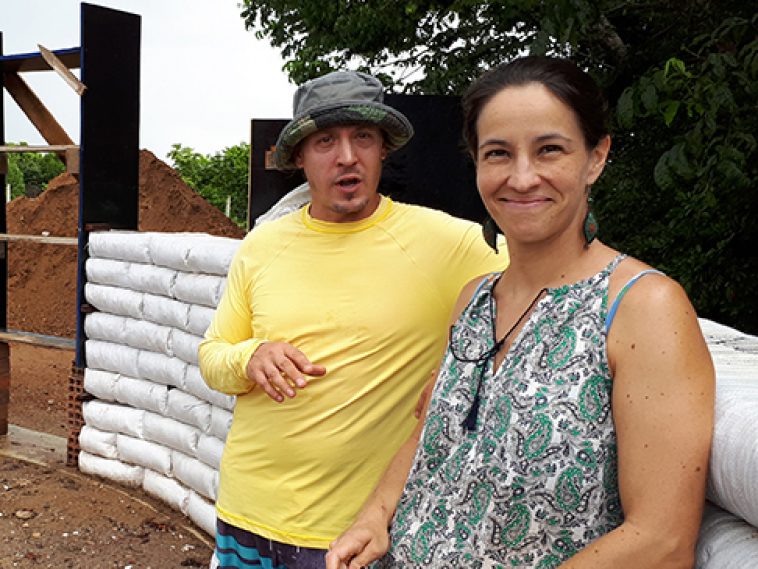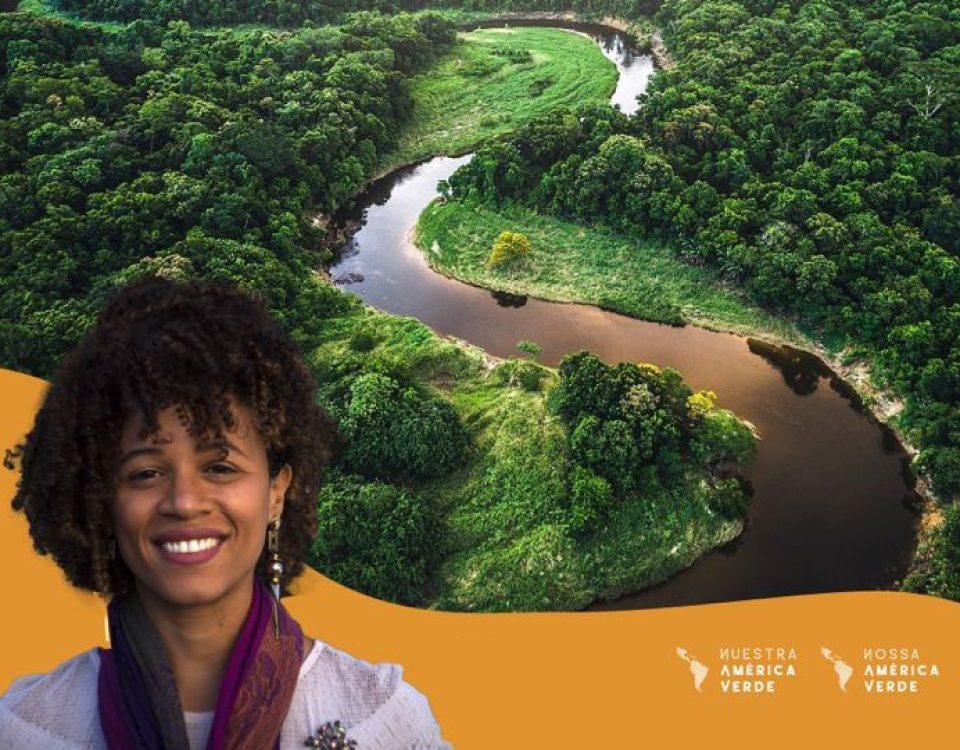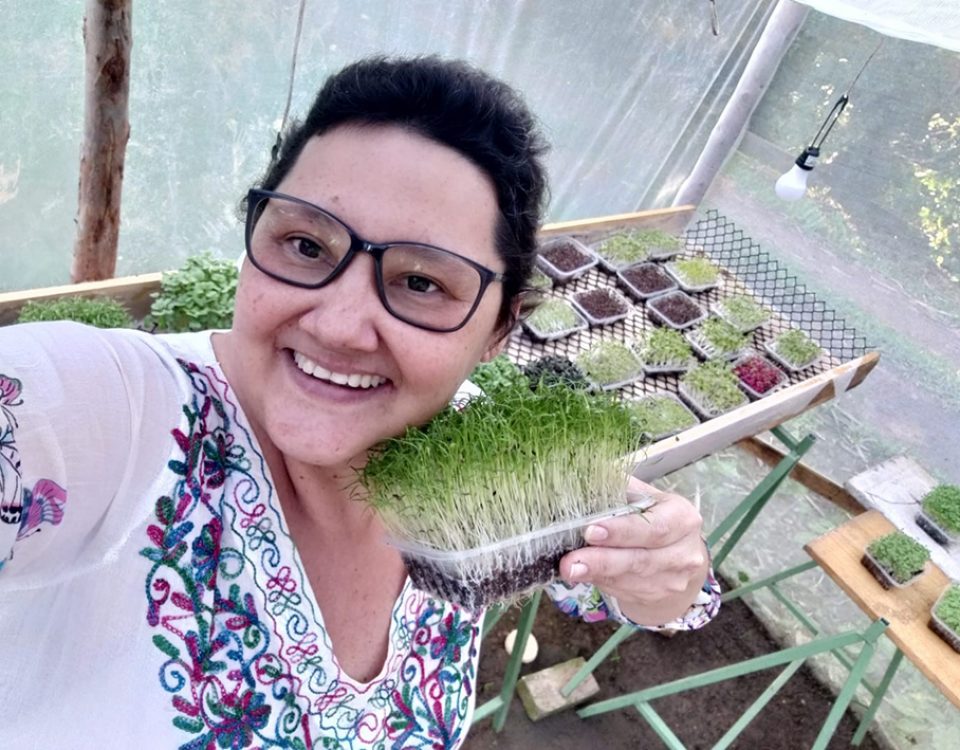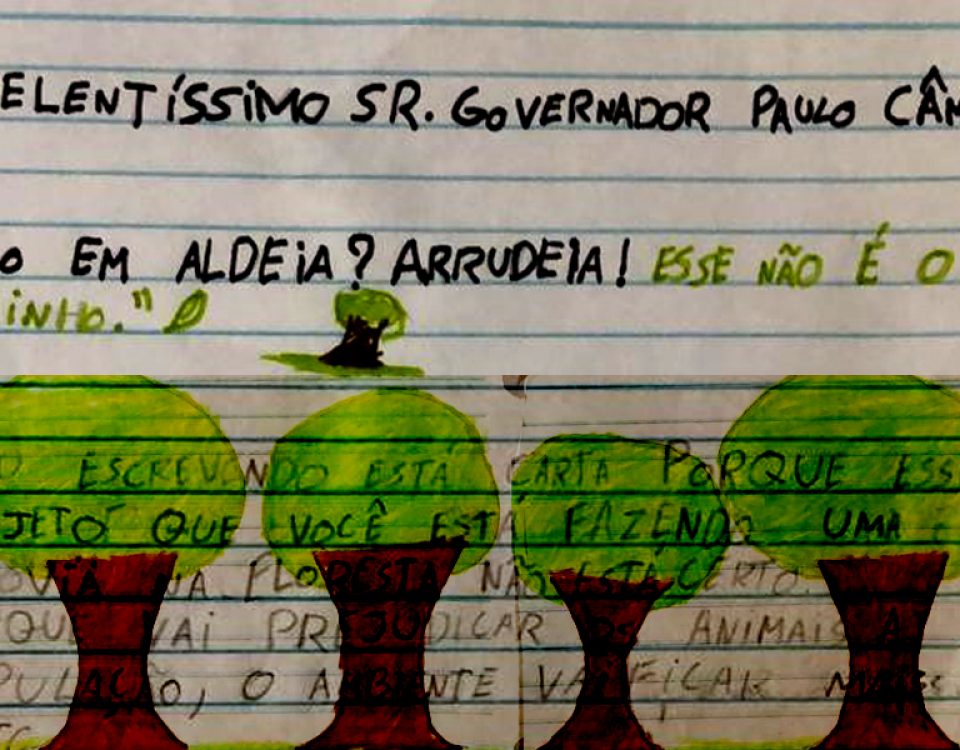Yes, we can! Couple in Aldeia build their own home*

Tatiana Portela
* A versão em inglês do post foi um pedido do casal, que tem familiares e amigos nos Estados Unidos. O texto original, em português, pode ser conferido abaixo:
https://poraqui.com/aldeia/yes-we-can-casal-em-aldeia-constroi-a-propria-casa/
Clara and Adam fell in love 17 years ago, so they first met when she arrived to study in his country, the United States. Since then they have been together and today, living in Aldeia, they have adopted a lifestyle that is increasingly focused on sustainability, respecting the environment and seeking to consume less and produce more.
Since November of last year, they have been building, with their own hands, the house where they want to live. A house made of a lot of sweat, dreams, woven plastic bags full of superadobe and a few rolls of barbed wire.

First bag signed by the couple and friends that helped[/caption] The construction of the ecological house is part of an idea that permeates the day to day life of the couple. Clara explains: ‘Society tells us all the time that we are not capable of this and that, making us slaves of modernity, money and industry. But we are capable, yes. We here are building our own house; everyone can do what they want. ‘
Watch the timelapse Clara and Adam produced:
https://www.youtube.com/watch?v=XWUT_93Dg2Qamp;feature=youtu.be Ever since
they study permaculture – he, in the United States; she, in Olinda-a few years ago, they began to think differently about many things. They do not watch television, they do not want children because they believe that there are already too many people in the world, they produce their own personal cleansers with natural ingredients and try to distance themselves from everything that ‘dictates the system’.
Sustainable House

Clara, 37, is a robotics teacher at a private school. Adam, 39, is an electrician, carpenter, and artist. The idea of the house came when they had the opportunity to buy land in Aldeia. In the United States, where he was born and she has lived for 13 years, the DIY culture is very strong, and they decided to roll up their sleeves and do it themselves.
“In the United States, it’s a bit more common, people invite their friends to help and everyone works together, it’s a way to socially integrate as well”, says Adam. In Brazil, it’s a bit different. People want to know what kind of beer and who’s the band….. ‘, he laughs.
Once they had the idea, they researched and started planning the sustainable home. ‘We wake up and go to sleep thinking about the house,’ says Clara. Since the end of last year, when they went around collecting broken concrete to make the house foundation, they dedicate a lot of their time to the construction.

The concrete being used as the foundation of the house[/caption] Adam spends his days there and Clara helps when she is not teaching. If the rain holds off and they find someone to help, they hope to have the construction of the wall and the roof done in two to three months.
Earthbag wall
The earthbag wall technique, chosen by them, is quite simple. It consists of woven plastic bags of about 40 pounds of a mixture of clay and rubble from processed construction (which they buy from a local company) stacked to form the walls. In Between each row of bags goes a line of barbed wire which acts as mortar to help to hold the wall together. The plaster of the walls will be made of clay, gum (cooked yucca flour), sand and horse manure.

Beyond simple and cheap, the technique is nothing new. ‘Man has been building shelter with clay for thousands of years. Concrete is a new and heavily polluting technique,’ recalls Adam. And the fact of taking advantage of remains of works makes the idea even more ecological. Clara quotes a wall she and her husband built in the United States with pieces of a cracked concrete deck. Besides being useful, the wall was so beautiful that it received many praises from friends.

‘Here in Brazil,’ she laments, ‘what we see most are remains of works getting lost out there. Nobody takes advantage. Just look at the amount of debris that the highway BR-101 refurbishment is generating and could be used to build homes for the underprivileged. It’s unfortunate. ‘
To learn more about the project send them an email: [email protected]
Tradução/Translation: Clara Phillips





